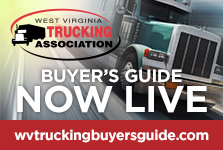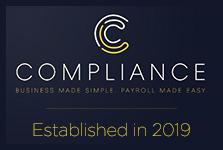West Virginia is one of only four states responsible for all road and bridge maintenance and repair, excluding municipal roads; while having the sixth largest state-maintained highway system in the nation. The report indicates that more than one-third of the roadways in West Virginia’s highway system are considered to be in poor condition, while nearly 35% of our state’s 7,000 bridges need repaired or replaced. The study also shows that West Virginia’s deteriorating roadways cost motorists more than $400 million annually in extra vehicle maintenance and operation, or more than $300 annually to the average West Virginia motorist.
The report concludes that while improvements to our state’s infrastructure are critical, it would take an additional $1.13 billion in funding to adequately maintain and improve our roadways. The report points out two significant factors prohibiting notable improvement: a stagnant State Road Fund that can’t keep up with inflation; and the lack of a long-term funding solution from Congress via the national Federal Highway Trust Fund, which accounts for 34% of our state’s road repair and maintenance funding.
The funding shortcomings leave the state searching for ways to generate additional streams of revenue. The commission makes a number of recommendations to increase the current avenues of revenue and to also seek out new streams of funding:
- Motor vehicle sales tax – Increase the motor vehicle sales tax form 5% to 6% to match the consumer sales and use tax.
- Registration fees – Increase DMV registration and motor vehicle licensing fees and index for inflation, adjusted bi-annually to the Consumer Price Index.
- Alternative fuel vehicle registration fee – Assess an annual registration fee on alternative fuel vehicles.
- Other tax revenue – Dedicate the consumer sales and use tax revenue already collected form purchases associated with cars and trucks, e.g. automobile parts, batteries, brakes, services, etc. to the State Road Fund
The Commission's revenue recommendations listed above would generate an estimated $141 million in additional annual funding, still much lower than the $1.13 billion that is said to be needed; though a key recommendation of the Commission is to maintain the current structure of Parkways past 2019 and that Parkways issue up to $1 billion in bonds for road projects statewide which would be backed by future increases in toll revenue. These actions will go a long way toward provided increase funding to improve our infrastructure.
While the report is an important starting point to move the conversation and action forward, the report admits that the recommendations of the commission do not solve all of the problems facing West Virginia’s crumbling infrastructure nor do they provide the answer to fully fund solutions. With the formation of the Legislature’s Joint Committee on Tax Reform and releasing this report to Governor Tomblin, it provides an opportune time for him to encourage the Joint Committee to further work toward funding our highways and bridges.
To review the Blue Ribbon Commission Report in its entirety you may visit the link below:
http://www.transportation.wv.gov/highways/highwayscommission/Documents/WVBRC%20Final%20Report.pdf









